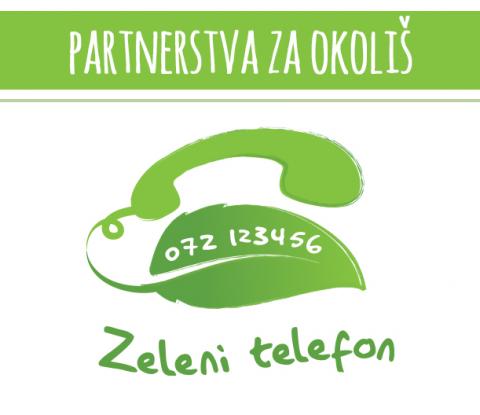End of the Partnership for the Environment Project: Development of capacities in environmental protection of the public and civil sector in Croatia through the application of the Green Phone service
The end of December 2016 was also the end of the two-year project of the Green Phone Network Partnership for the Environment: Development of capacities in environmental protection of the public and civil sector in Croatia through the application of the Green Phone service.
We would like to remind you that the project was funded by the EU (90%) within the Grant Scheme Strengthening Support to Civil Society Organisations for Increasing Transparency and Good Governance in Public Administration in Croatia in the framework of the I component of IPA 2011 (National programme for Croatia under the IPA Transition Assistance and Institution Building Component for 2011) and the Government of the Republic of Croatia Office for Cooperation with NGOs.
The project involved all the members of the Green Phone Network Croatia – the telephone which citizens can use to report various environmental problems and give their proposals, and the employees forward the information to the competent institutions.
This was a great experience for the Green Phone Network which brought many positive things to us and our users, associates and the general public.
The conducted activities and achieved results have contributed to achieve the overall objective of the project – to build a strong partnership and effective long-term cooperation between citizens, local and state authorities and civil society organisations involved in the protection of the environment and nature.
Through the one-year research and data collection on the structure, methods, procedures and resources for the work of local and state government through analysis of calls, surveys and interviews, we identified the potential obstacles and problems in achieving that goal, and we have proposed the possible solutions – and shaped it all up into the publication Dismissed, C! which was distributed to 780 e-mails of relevant services, but also promoted through the media and the websites and social pages of project partners and associates.
Our own capacities for active participation in solving the environmental problems have been built through education in the workshops “Legal tools in Environmental Protection” and “Journalism and Protection of the Environment”, through regular mutual communication between Green Phone activists, and through exchanging ideas, developing advanced applications for tracking report statistics.
We encouraged transparency in the work of local and state government through the workshops “Models of Public Information”. Representatives of local and national authorities were enabled to present their own work through participation in radio/TV broadcasts, and via project partners’ social network pages.
Citizens have been invited for cooperation, but also educated about the possibilities for active participation in protecting the environment and nature through regular radio or TV programs on the work of the Green Phone. In addition, we prepared, printed and distributed the publication on active participation in protecting the environment and nature You can do it! The publication offers 20 solutions for 20 environmental problems and we hope it will encourage citizens to speak about the issues that concern us all openly and publicly, and to become responsible citizens and members of our local and global community.
Cooperation with bodies and services of local and state governments in protecting the environment and nature has also been strengthened through round tables, through a joint discussion of local environmental issues and participation in joint actions for eliminating these problems. Thus, we contribute to the resolution of specific local problems related to the protection of environment and nature. Six agreements on cooperation in resolving environmental problems have been signed.
The Green Phone activists have offered assistance to citizens in resolving environmental problems every day, and they also educated them about the possibilities of active participation in the protection of environment and nature.
In their work, the activists have used the help of newly-developed tools such as the mailing list of external experts for specific areas and environmental components. In addition to shortening and facilitating the resolution of reports, this tool contributes to the increased proportion of successfully resolved problems.
However, the end of the project is not the end of building strong partnerships and effective long-term cooperation between citizens, local and state authorities, and civil society organisations involved in the protection of the environment and nature.

